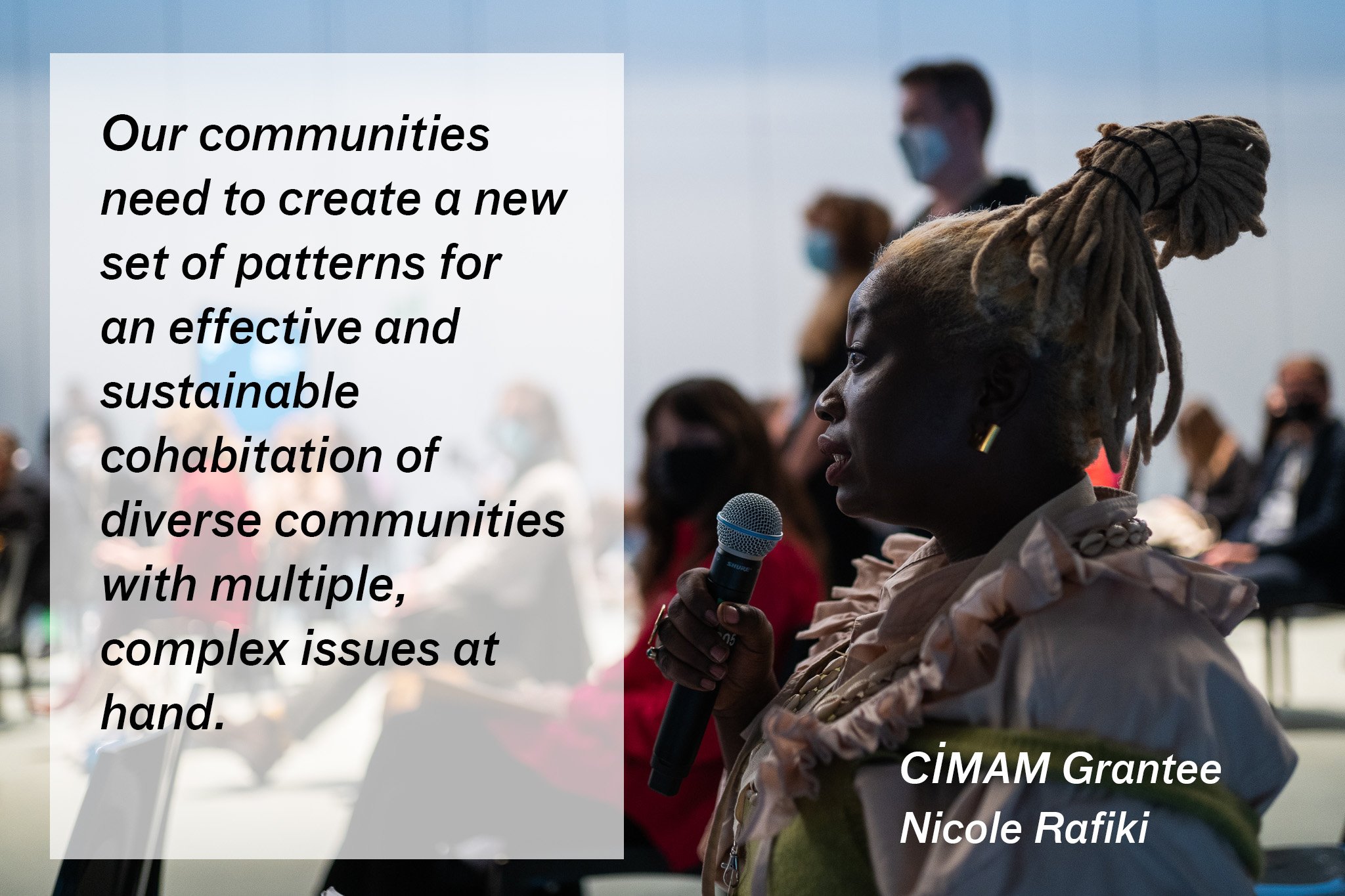"Our communities need to create a new set of patterns for an effective and sustainable cohabitation"

In 2021, 50 contemporary art curators, researchers, and museum professionals from 32 different countries were awarded support to attend the CIMAM 2021 Annual Conference, in-person and online.
For the first time, and thanks to the generous support of The Getty Foundation who sponsored the virtual platform, 27 grantees attended the conference online, while 23 attended onsite.
Launched in 2005, CIMAM’s Travel Grant Program is designed to foster cooperation and cultural exchange between contemporary art curators and museum directors in emerging and developing economies and their counterparts in other regions of the world.
Nicole Rafiki's Conference Report
Firstly, I would like to thank the organizing committee for this amazing opportunity. Overall, I had an enriching experience at the CIMAM conference. But what touched me the most was the amazing people I interacted with. This was my first physical gathering with colleagues in months. It reminded me of the importance of togetherness for our mental health, emotional stability, and professional growth as we adapt to a different life under pressure. I specifically enjoyed meeting my mentor Malgorzata Ludwisiak in real life for the first time. Meeting colleagues from different continents, of different age groups, and various institutions motivated me to endure my journey. Thank you for your efforts to include more curators from the African continent and its diaspora in the CIMAM conference.
As I explored during my CIMAM's StayHome Curatorial Online Residency, our communities need to create a new set of patterns for an effective and sustainable cohabitation of diverse communities with multiple, complex issues at hand. One step towards that is understanding the complexity of the challenges we face. One thing I expanded my understanding of is Xenophobia. I became aware that xenophobia can have different connotations in different communities in this conference. Initially, my understanding of it was rooted in the historical, political, and financial environment in South Africa. At the conference, I gained more knowledge of the Polish adaptation of the word and its complexities.
Learning about women such as Anna Smoleńska and Helena Bohle-Szacka resonated with me a lot. I find it quite striking that people who go through similar experiences, such as war, have a connection that transcends time and space. Somehow, I felt seen and heard through these women's stories even though their experiences are connected to WWII in Europe, while mine is linked to the "African World War" of DR Congo in our recent past. I truly enjoyed the variations between lectures, social interactions, and museum visits.
The combined methods of interaction and learning in an interactive environment benefited my growth as a curator and community organizer. Through the interactive sessions, I connected with my colleagues in a fun and engaging way. In my experience, people shared wholeheartedly and honestly. There was little room for professional noncompliance of distance. Although the topic of climate change sometimes can lead to a certain fear of an apocalyptic end, I experienced a light-hearted and optimistic community of people working together towards multiple solutions to common challenges.
I am truly grateful and happy that I could participate in the CIMAM 2021 conference in Lodz and Gdansk.